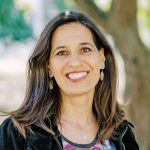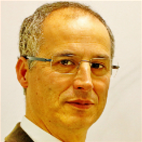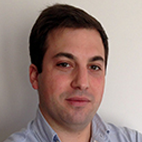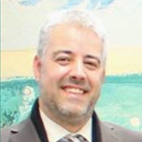COMMITTEES
CONFERENCE CHAIRS

João Rafael Galvão
Polytechnic University of Leiria, Portugal

Paulo Sérgio Brito
Polytechnic of Portalegre, Portugal
KEYNOTE SPEAKERS

Eduardo Zarza-Moya
Plataforma Solar de Almería – CIEMAT
Spain
Speech title: “Concentrating Solar Thermal (CST) Technologies for Sustainability”
Eduardo Zarza-Moya is a researcher with 37 years of experience in the field of concentrating solar thermal (CST) technologies. At present he is working at the Plataforma Solar de Almería (PSA) as Technical Coordinator and Head of the R+D Unit on Line-Focus CST technologies. He has coordinated several national and International R+D projects related to CST technologies (the projects: DISS, Solar Thermal Desalination, CAPSOL, PREDINCER, DETECSOL, etc..). He is member of: the AEN206/SC117 and IEC/TC117 standardization committees for solar thermal power plants, the Scientific and Technical Committee of the European Association of Solar Thermal Electricity (ESTELA), and the Spanish representative at the Executive Committee of SolarPACES.

Fernando José Cebola Lidon
Faculty of Sciences and Technology of Universidade Nova de Lisboa (FCT/UNL)
Portugal
Speech title: "Biofortification of Pear Rocha with Calcium: Production Workflow and Quality Definition of the Final Product."
Fernando José Cebola Lidon is a Full Professor at the Faculty of Sciences and Technology of Universidade Nova de Lisboa (FCT/UNL) and Coordinator of the Research Center “Geobiosciences, Geoengineering and Geotechnologies” – GeoBioTec – Polo FCT/UNL. Graduated in Biology and Geology from the University of Évora and in Biochemistry from the Faculty of Sciences of the University of Lisbon, with a PhD in Biology – specialty Plant Biochemistry from FCT/UNL and recognition by ECE/USA. Develops is work in the field of Agroindustrial Production and Transformation Technologies, focusing its activity on the development of functional foods following sustainable perspective, considering principles of eco-efficiency with the adoption of last generation technologies and aiming at the promotion of economic added value. Thus, in articulation with the agro-industrial industry, is developing techniques for the biofortification of edible parts of foods of vegetable origin, equating with the introduction of technical itineraries to increase productivity indices, adoption of crop monitoring techniques with the introduction of edaphoclimatic sensors and definition of food and nutritional quality standards

Wolf-Gerrit Früh
School of Engineering and Physical Sciences
Institute of Mechanical, Process and Energy Engineering
Heriot-Watt University, Edinburgh, Scotland
Speech title: "The role of low-carbon energy sources and storage in the water-food-energy nexus"
After completing a first degree in Physics at the University of Freiburg in Germany and a DPhil in Atmospheric Physics at the University of Oxford, Wolf-Gerrit Früh took up a position in 1997 teaching Mechanical and Energy Engineering at Heriot-Watt University in Edinburgh. His research covers a wide range from fundamental fluid dynamics experiments and simulations through wind turbine aerodynamics to energy systems modelling and the application of data science for prediction and optimisation for energy systems design and scheduling.
Recent work relevant to the Energy-Water-Food nexus include a study to reduce the carbon footprint of whisky distillation through Renewable Energy and thermal storage, heat-recovery in commercial kitchen, aquaponics, vertical farming, and desalination through solar-powered reverse osmosis. Most of these projects included collaboration with industry.

Antje Disterheft
NOVA School of Science and Technology, NOVA University Lisbon, Portugal
Speech title: "Sustainability and care - why our inner worlds matter for transformative change"
She holds a PhD in Social Sustainability (Universidade Aberta) and is an alumni of the Postdoc Academy for Transformational Leadership. German by nationality, but living in Portugal for more than 16 years, she enjoys being in nature, biking and cooking.

Shaul Sorek
Ben-Gurion university of the Negev,
Jacob Blaustein Institutes for Desert Research, Zuckerberg Institute for Water Research, Department of Environmental Hydrology & Microbiology, Sde Boker Campus, ISRAEL.
Speech title: "Policy Directed Information Technology Governing Network Welfare by Balancing the Water-Energy-Food Nexus and Human Perceptions (WEFH) Measures"
Graduated as BSc in mechanical engineering at the Ben-Gurion university of the Negev and received his MSc and PhD degrees at mechanical engineering of the Technion – Israel Institute of Technology. His research interests are in the development of fundamental modeling for biomedical and environmental systems. These address theoretical formulation for macroscopic transport phenomena of multiphase and multi-components driven through heterogenous media by inertia to drag dominant forces, and related numerical methods implementing Eulerian and Lagrangian concepts. Concerning quantitative decision making for water related resources management, he aims on causality driven directed information in addition to spatiotemporal measures.

Maria Dermiki
Atlantic Technological University, Ireland
Speech title: “What would you eat to save the earth?”, Challenges and Opportunities for Sustainable Food Product Development.
Dr Maria Dermiki has an interdisciplinary background in scientific research with a degree in Chemical Engineering from Aristotle University of Thessaloniki, MSc in Food Science and Nutrition from University of Ioannina, PhD in Food Biosciences from the University of Reading, postdoctoral research experience in Sensory Science and Dairy Science and finally industrial experience in Food Product Development. She has a holistic approach in product development, starting from Food Chemistry, Food Processing, Sensory Evaluation and Consumer Science, Packaging and Legislation, while adhering to sustainable practices. She is interested specifically in understanding the food choices of different population groups to develop nutritious foods that address the three pillars of sustainability and contribute to sustainable diets. Finally, she applies the UN Sustainable Development Goals to all the modules she teaches at undergraduate and postgraduate level, with the aim to help students apply sustainable practices in their professional and everyday life.
Organizing Committee

Ana Carolina Assis
Polytechnic University of Portalegre

Catarina Nobre
Polytechnic University of Portalegre

Filipe Neves
Polytechnic University of Leiria

Flávio Craveiro
Polytechnic University of Leiria

Henrique Almeida
Polytechnic University of Leiria

Joel Vasco
Polytechnic University of Leiria

Luis Calado
Polytechnic of Portalegre

Pedro Monteiro
Polytechnic University of Portalegre

Ricardo Gomes
Polytechnic University of Leiria

Roberta Panízio
Polytechnic University of Portalegre

Sandra Mourato
Polytechnic University of Leiria

Vânia Ribeiro
Polytechnic University of Leiria
SCIENTIFIC COMMITTEE
Ana Gomes
Porto Catholic University, Portugal
Ana Rodrigues
Politechnic University of Leiria, Portugal
Abel Rodrigues
INIAV/ Research Institute, Portugal
Ahmad Pourmovahed
Kettering University, Michigan, USA
Alfeu Sá Marques
Coimbra University, Portugal
Ana Vale
School of Science IT Sligo, Ireland
Antonio Macías
Extremadura University, Spain
Annukka Pakarinen
HAMK University, Finland
Carla Ferreira
ESAC/Coimbra Polytechnic, Portugal
Carlos Henggeler
INESCC/Coimbra University, Portugal
Catarina Nobre
Polytechnic University of Portalegre, Portugal
Eduardo Álvarez
Oviedo University, Spain
Eliseu Monteiro
FEUP/Porto University, Portugal
Fausto Freire
CIE/Coimbra University, Portugal
Fernando Lidon
FCT Lisbon University, Portugal
Fulvia Chiampo
Politecnico di Torino, Italy
Howard Dryden
Scotland University, UK
Hassan El Bari
Kenitra University, Marocco
Helena Bártolo
Polytechnic University of Leiria, Portugal
Jerónimo Cortés
CICTE/Extremadura Research Center, Spain
João Pina
FCT/Nova Lisbon University, Portugal
Jorge MGP Isidoro
Algarve University, Portugal
José Lobo
Extremadura University, Spain
Kirsi Knuuttila
HAMK University, Finland
Lucélia Hoehne
Universidade do Vale do Taquari – UNIVATES, Brazil
Lisiane Librelotto
UFSCatarina, Brasil
Luís Loures
Polytechnic University of Portalegre, Portugal
Luís Neves
INESC/Politechnic University of Leiria, Portugal
Luís Silva
Porto Polytechnic, Portugal
Luís Tarelho
Aveiro University, Portugal
Luisa Schmidt
ICS/Lisbon University, Portugal
Luiz Rodrigues
Polytechnic University of Portalegre, Portugal
Madalena Moreira
Évora University, Portugal
Margarida Gonçalves
Nova University, Portugal
Manuel Hermoso
Jaen University, Spain
Maria Dermiki
Atlantic Technological University, Ireland
Maria Manuela Silva
Dep. Ciências da Terra, Lisbon University, Portugal
Marika Tossavainen
HAMK University, Finland
Marritta Kymalainen
HAMK University, Finland
Milica Kasanin-rubin
University of Belgrade, Serbia
Mauricio Nogueira Frota
Pontifical Catholic University of Rio de Janeiro, Brazil
Mohammed Karim BENHACHMI
University Hassan II/Casablanca, Marocco
Nicolau Almeida
Polytechnic University of Portalegre, Portugal
Noel Pereira
Birmingham City University, UK
Paulo Mourão
Évora University, Portugal
Remco Kranendonk
Wageningen University, Nedherlands
Ricardo Chacartegui
Sevilha University, Spain
Rodrigo Moruzzi
UNESP/ São Paulo State University, Brazil
Rui Ganhão
Polytechnic University of Leiria, Portugal
Saifur Rahman
Virginia Tech Advanced Research Institute, USA
Sérgio Leitão
UTAD/Trás-os-Montes e Alto Douro University, Portugal
Susana Neto
IST/Lisbon University, Portugal
Szakonyi Petra
István University/Győr, Hungary
Teresa Mouga
Polytechnic University of Leiria, Portugal
Valentim Realinho
VALORIZA/Polytechnic University of Portalegre, Portugal
Wolf-Gerrit Früh
Heriot-Watt University, Edinburgh, Scotland
Zahra Kalantari
Stockholm University, Sweden
